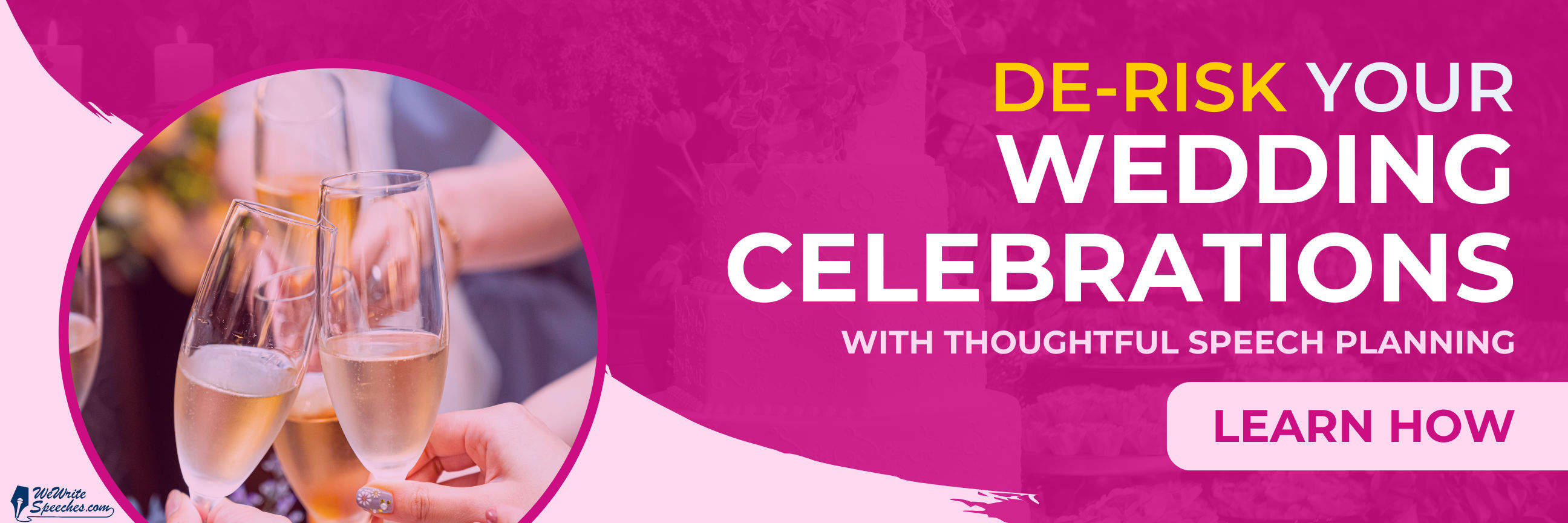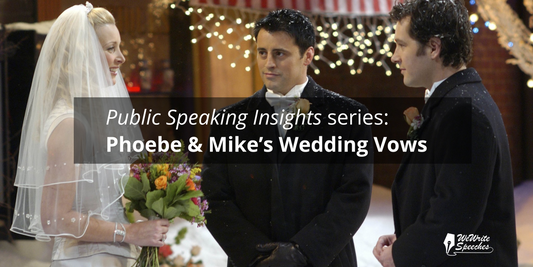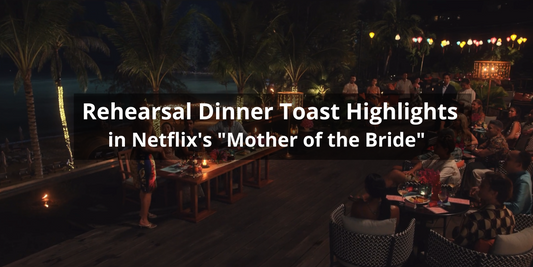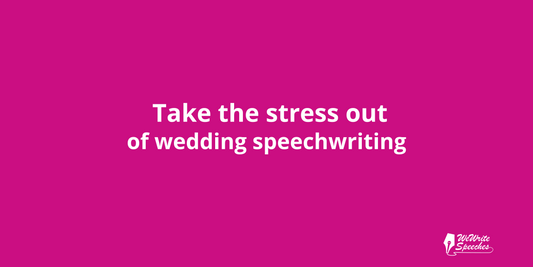As we conclude our series "Wedding Speeches: Lessons from the Limelight". it's time to put together all the valuable tips we've learned from theater, improv, stand-up comedy, how to be present on stage, and connect with the audience. Each area gives us particular ways to make wedding speeches that speak to your audience and make a lasting impression on the big day. Here, we summarize the main points we have gleaned from studying these performance arts and how they can help you make a fantastic wedding speech.
Key Takeaways from Each Type of Performance Art
Theater teaches us the power of preparation, the art of storytelling, and the importance of emotional depth. A well-rehearsed speech, characterized by strong anecdotes and the ability to convey genuine emotion, can captivate an audience just as effectively as any theatrical performance. Theater and wedding speeches have similarities but are not the same:
- In theatre, the playwright and actors reveal the personalities of the characters by how those characters interact with each other. Wedding speakers can’t do that, so they must reveal their subject’s personalities by recounting anecdotes about them (how they reacted to some situation in the past). So, anecdotes play an important role in wedding speeches, in order for the audience to get to know the couple and other role players.
- In theatre, the playwright, who has full visibility of everything, writes the lines and stage directions that drive the performers to interact with each other. On the other hand, each wedding speech is written separately, without visibility of what other speakers have written. It is, therefore, more challenging for them to create callbacks, etc. The only way to be sure such callbacks can happen is for someone to plan out the speeches beforehand and then brief each speaker on what topics they must cover, what toasts they should give, and what opportunities for callbacks might exist.
- In theatre a huge amount of time is spent rehearsing before the actual performance. Wedding speakers should also rehearse thoroughly. To give themselves the best chance of being able to do that, they should start writing their speech as early as possible.
- There are a lot of ways in which a wedding speaker can learn from watching actors preparing for a part, in terms of memorization techniques, stage presence, use of voice, etc.
From improv, we learn the value of spontaneity, adaptability, and audience interaction. Being open to the moment and ready to weave in elements of the unexpected keeps your speech fresh and engaging, creating a unique connection with your audience. These skills, which are typically only possessed by experienced speakers, help with:
- Dealing with unexpected interruptions.
- Being able to create callbacks on the fly.
Stand-up comedy highlights the importance of timing, humor, and personal anecdotes. A speech that includes well-timed jokes and relatable stories can entertain and engage, making the celebration even more joyful. We can learn a lot about delivering funny lines by watching successful comedians in action.
Additionally, we can take inspiration from how stand-up comedians prepare for the unexpected. They anticipate interruptions from hecklers and have lines prepared to turn the situation to their advantage. Similarly, when it comes to wedding speeches, most of us know that there is a risk of forgetting our lines or losing our place in the speech. It is something we can prepare and practice for.
Blending Preparation, Spontaneity, Content Creation, and Delivery
The art of delivering a remarkable wedding speech lies in the balance between meticulous preparation and the flexibility to adapt in the moment. Start with a solid foundation by crafting a speech that will be meaningful to the couple and the occasion. Incorporate personal anecdotes and humor where appropriate, rehearsing enough so that the words feel natural but not memorized. The most important thing is to start early and give yourself enough time to prepare and rehearse.
However, leave room for spontaneity. Allow the day's events, the mood of the audience, and the speeches that precede yours to influence your delivery. This blend of preparation and adaptability ensures your speech feels personal and responsive to the moment.
Final Thoughts on Authenticity and Emotional Resonance
Above all, the most powerful wedding speeches are those that are authentic and resonate emotionally with the audience. Your speech should reflect your genuine feelings and observations, offering insights into the couple's relationship and their journey together. Emotional resonance doesn't necessarily mean making people cry; it means touching their hearts through laughter, joy, nostalgia, or hope.
Remember, a wedding speech is a gift—not just to the couple but to everyone present. It's an opportunity to share love, celebrate union, and contribute to the memories of a day that will be cherished forever. By drawing on the lessons from various performance arts, you can enhance your ability to craft and deliver a speech that is both memorable and meaningful.
Thank you for joining us through this series. We hope these insights inspire you to approach your wedding speech with confidence, creativity, and a deep sense of connection. Here's to creating moments that not only celebrate love but also the timeless art of storytelling.




